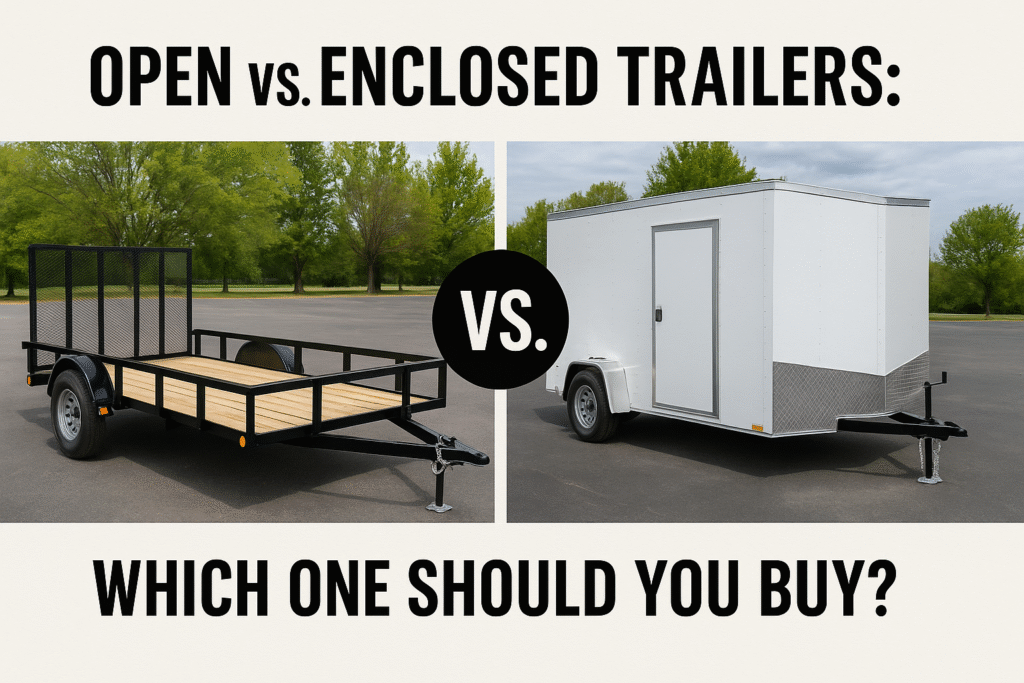When choosing a trailer, one of the first decisions is whether you need a single axle or a tandem axle. This affects everything from weight capacity to towing stability, and even how much maintenance you’ll deal with.
In this guide, we compare tandem vs single axle trailers — so you can choose the right setup for your hauling needs.
1. What Is a Single Axle Trailer?
A single axle trailer has one set of wheels, typically used for:
- Light-duty hauling
- Smaller trailer sizes (5×8, 6×12)
- Lower towing weight
✅ Pros:
- Lower upfront cost
- Easier to maneuver in tight spaces
- Lighter = better fuel economy
- Less maintenance (1 axle = 2 tires)
❌ Cons:
- Limited payload capacity
- Less stable at high speeds
- No built-in brake redundancy
2. What Is a Tandem Axle Trailer?
A tandem axle trailer has two axles (4 wheels total), making it better for:
- Heavier loads
- Long-distance towing
- Larger trailers (7×16, 8.5×20, etc.)
✅ Pros:
- Handles more weight
- Better stability on highways
- Smoother ride
- Safer if one tire blows
❌ Cons:
- Higher cost
- Slightly harder to turn and park
- More tires and parts to maintain
3. When Should You Choose Single Axle?
Go with a single axle trailer if:
- You haul under 3,000 lbs regularly
- You’re using a smaller vehicle or SUV
- Your trailer will be stored or parked often
- You’re prioritizing budget over cargo size
📦 Best for: Utility trailers, small enclosed trailers, occasional use
4. When Is Tandem Axle the Right Choice?
Choose a tandem axle trailer if:
- You carry heavy equipment, materials, or tools
- You travel longer distances or drive at highway speeds
- You want extra stability and safety
- You need a trailer with brakes on both axles (often required by law)
📦 Best for: Dump trailers, food trailers, horse trailers, car haulers
5. Legal and Safety Considerations
Depending on your state:
- Trailers over 3,000 lbs may require brakes on all axles
- You may need a tandem axle setup for commercial applications
- Tandem axles are often safer in poor road conditions
💡 Equilhaul can guide you based on your location and vehicle.
Conclusion
Still unsure about tandem vs single axle trailers? Here’s the rule of thumb:
- Single axle = light loads + short trips
- Tandem axle = heavy loads + long hauls
👉 Browse all trailer types or contact our team to match the right axle configuration to your specific needs.
